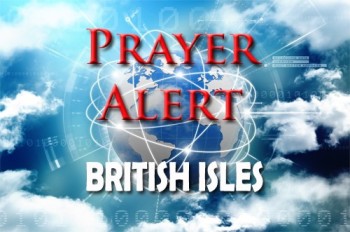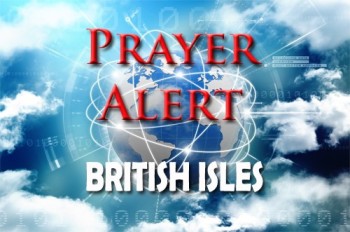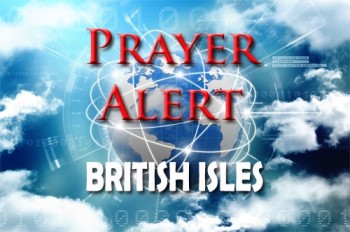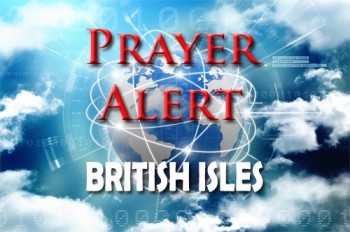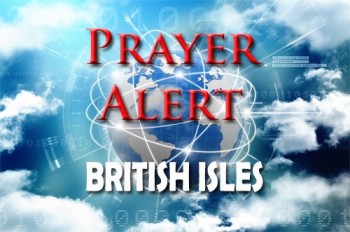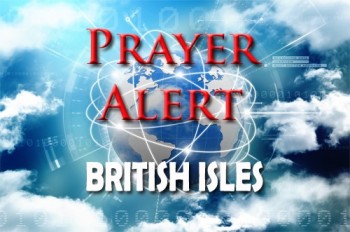Displaying items by tag: Covid
Covid XEC, flu and RSV 'tripledemic' to hit UK
As winter approaches, UK health experts are warning of a potential ‘tripledemic’ involving Covid, flu, and Respiratory syncytial virus (RSV). The past two winters have seen high numbers of deaths due to flu or Covid, with December and January being the peak months. To mitigate the impact, the NHS is encouraging vaccinations, particularly for vulnerable groups like the elderly, pregnant women, and people with long-term health conditions. Over 2.8 million are eligible for the Covid jab, and 4.2 million for flu shots. These vaccines are essential not only for saving lives but also for reducing hospital admissions and alleviating pressure on NHS services. Symptoms of Covid, flu, and RSV can overlap, including fever, cough, and shortness of breath, making it difficult to distinguish between them. Vaccination, along with good hygiene practices and early diagnosis, is crucial in protecting against the severe impacts of these respiratory viruses this winter.
36 million people across the European Region may have developed long COVID over the first 3 years of the pandemic
According to the World Health Organization (WHO), an estimated 36 million people in the European region may have developed long COVID during the first three years of the pandemic. This condition, characterised by lingering symptoms post-COVID-19 infection, presents a significant public health challenge. The WHO's statement highlights the need for comprehensive care and support for those affected. Long COVID symptoms can vary widely, from fatigue and cognitive dysfunction to more severe physical issues, impacting daily life and work capacity. The organisation stresses that these long-term effects require serious attention and response from healthcare systems. The WHO's Regional Director for Europe, Dr. Hans Henri P. Kluge, emphasises the critical need to understand and address long COVID. He calls for sustained research efforts, investment in rehabilitation services, and public health strategies to manage and mitigate its impact. This situation reflects the pandemic's ongoing and evolving challenges, with long COVID affecting millions across the European region. It underscores the importance of continued vigilance, research, and healthcare system adaptation to meet the needs of those living with the long-term effects of COVID-19.
China: Covid policy tipping point
On 27 November thousands protested in Shanghai against Covid restrictions, shouting slogans against the government. In Beijing, Tsinghua, and Nanjing, students were arrested. The unrest began when lockdown was blamed for ten deaths in a tower block fire. Protesters held blank white banners, symbolising defiance against censorship. Such direct criticism of the president and government could result in harsh penalties, but by 30 November protesters in Guangzhou were throwing debris and glass at police wearing hazmat suits and clutching riot shields. The government has drastically misjudged growing discontent over zero-Covid restrictions. Millions have endured three years of movement restrictions and daily Covid tests. The anger has galvanised university students, factory workers, and ordinary citizens, all calling for President Xi to step down. Televised reports of the World Cup in Qatar have helped millions of Chinese to realise that Covid and social freedoms are not incompatible. On 1 December China finally shifted its stance and eased some virus restrictions as the vice-premier announced that the country was facing a ‘new situation’.
North Korea: sudden lockdown ordered
In late April, North Korea confirmed its first Covid cases and suspended overland trade with China (which had been resumed in January) after a surge of Chinese cases. The reclusive nation has repeatedly shunned international offers of vaccines, and has been forced into two years of strict isolation to stop the pandemic from crippling the already weak healthcare system. But blocking commerce with China, their largest trade partner, has upset an economy damaged by decades of mismanagement and punishing international sanctions. A serious lack of rainfall in the second worst drought since records began is disrupting farming and food supplies. Despite alarm over Omicron spreading, Kim Jong-Un has ordered scheduled construction, agricultural development and other state projects to continue, decreeing that ‘single-minded public unity is the most powerful guarantee that can win in this anti-pandemic fight.’
Valneva Covid vaccine approved in UK
A new Covid vaccine has been approved for use in the UK by regulators. It is manufactured by Valneva, using more traditional technology - similar to how polio and flu shots are made. It contains a whole copy of the virus which has been inactivated, so that it can't cause the disease but does teach the body how to fight it. The UK was due to receive 100 million doses of the jab, but the government cancelled the deal in September due to a ‘breach of obligations’. As with the AstraZeneca and Pfizer vaccines, it is designed to be given as two doses. The Commission on Human Medicines said, ‘We have advised that the benefit risk balance is positive. The vaccine is approved for people aged 18 to 50 years, with the first and second doses to be taken 28 days apart.’
Covid infections climb by a million in a week
Covid cases in the UK climbed by a million in the week ending 19 March: just under 4.3 million, up from 3.3 million the week before. Rates were up in England and Wales, and Scotland reached a new high of one in 11 Scots having Covid. Infections have started decreasing in Northern Ireland. A high number of infections means hospitalisations rising, although vaccines are still helping to stop many severe cases, said experts. Most of the remaining Covid restrictions in the UK come to an end on 3 April, with a few rules remaining for now in Wales and Scotland until 1 May. After that, people with symptoms will just be advised to stay at home until they feel better, Physical test sites will close, and contact tracing will end. See also
COP26: road closures, strikes, activists, Covid
The COP26 climate conference (31 October - 12 November) is expected to draw 25,000 delegates plus 100,000 protesters to Glasgow. Major road closures will last until 15 November, causing disruption. The biggest disturbance will be on 6 November - the Global Day For Climate Justice. A breakdown in union talks means workers will strike from 1-12 November. Pray for pedestrians, cyclists, drivers, and passengers to have composure and patience as they face difficulties when commuting to work. Also 1,500 refuse collection and cleansing staff are striking over a pay dispute. Concerns are also raised regarding COP26’s impact on Covid cases. Many of those attending will not be fully vaccinated, and the magnitude of the event will cause increased cases in an already fragile situation. It could trigger the need for further pandemic restrictions.
Australia: earthquakes and violent protests
One of Australia’s biggest earthquakes on record (magnitude 6.0) struck near Melbourne, damaging buildings. It was felt 500 miles away in Adelaide and Sydney 600 miles to the north. Over half of Australia's 25 million population lives in the southeast in an area from Adelaide to Melbourne to Sydney. Quakes are relatively unusual in this area. The shaking and damage did not stop hundreds of angry demonstrators from holding a protest across Melbourne against a vaccine mandate for construction workers (there are more Covid cases in the construction sector than there are Covid patients in the whole hospital system). Police fired rubber bullets and tear gas to disperse the demonstrations before making arrests. Earlier in the day the protesters had marched through the city centre, chanting their opposition to the mandate. See
Pupils return to school - Covid spike concern
Millions of pupils are returning to classrooms in England and Wales, amid fears of a spike in Covid cases. Most Scottish schools went back in mid-August and since then Scotland’s Covid cases have reached record levels. Pre-term Covid testing is being used to limit infection, but rules on social distancing and face masks have gone. Scientists have warned of a rapid rise in school cases without such measures and experts have not recommended jabs for healthy 12 to 15-year-olds. Ministers want a return to normality, but cases are more than 30 times higher among children compared with last year. Headteachers are hoping for a much smoother term but also want school safety measures to be kept under review. Modified exams have been pledged but there is little detail yet on England's plans. Teachers are asking for more information as they focus on helping pupils recover from the disruption.
Decisions on vaccinating children
Paul Whiteman of the school leaders' union says UK policy on jabs for children should be led by clinicians. Schools should not be responsible for promoting, enforcing, or policing pupil vaccinations. A record 1.13 million children in England were out of school for Covid-19 related reasons towards the end of term. Pupils will return to schools next month, and the Government needs to take every possible step to prevent transmission of the virus amongst people in school communities, no matter what their age. Vaccine decisions for teenagers will be guided by data from other countries. The reason to roll out the vaccine to children is to break the transmission chains in households and in schools for the autumn term, while we know the winter is going to be especially difficult with seasonal respiratory infections. Mr Whiteman recommends everyone over 12 should get the Covid vaccination, which is safe and effective. Israel is vaccinating 12- to 15-year-olds, feeling that protection from vaccination outweighs the risks.
